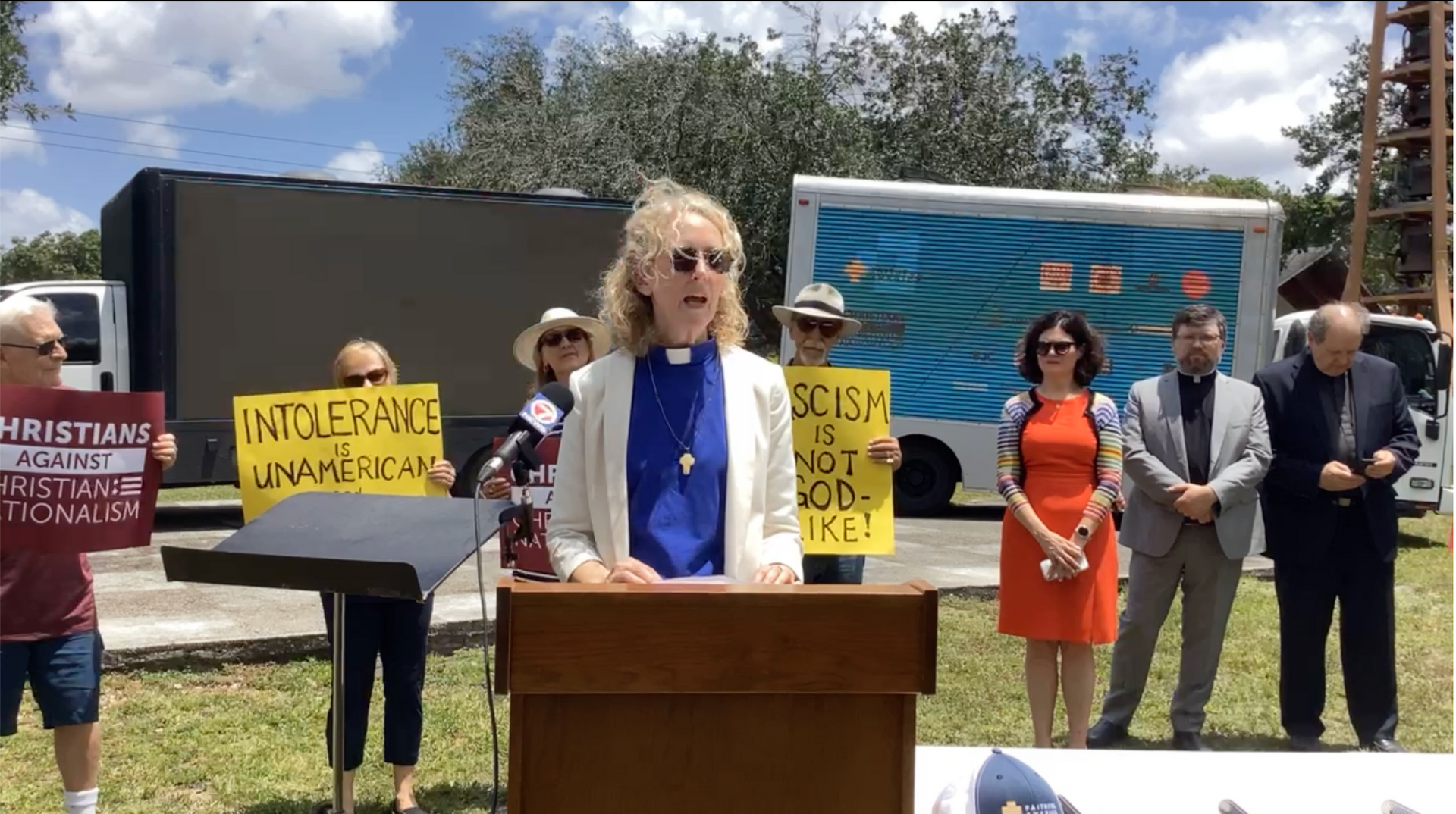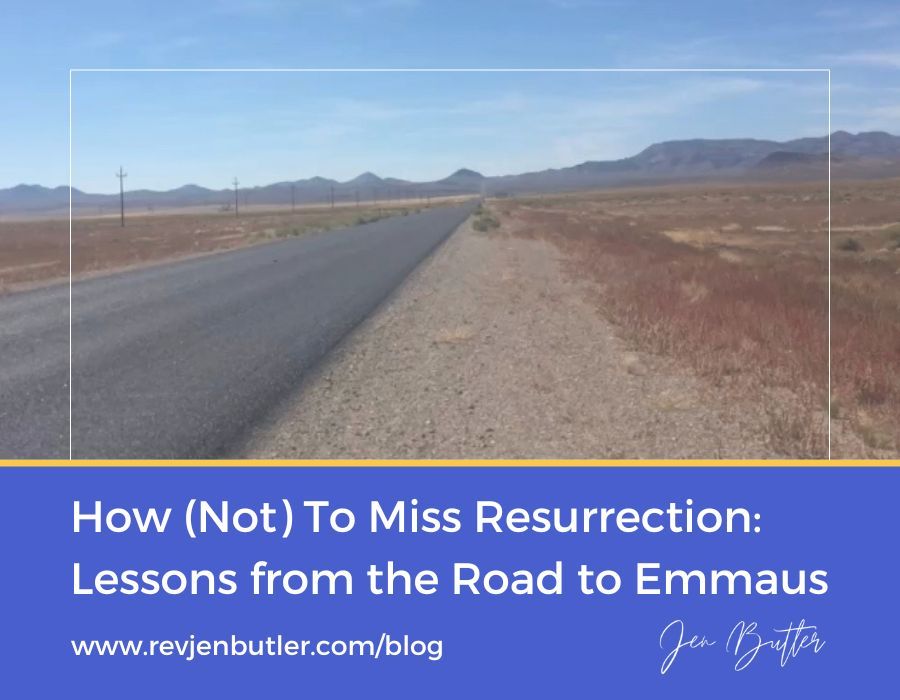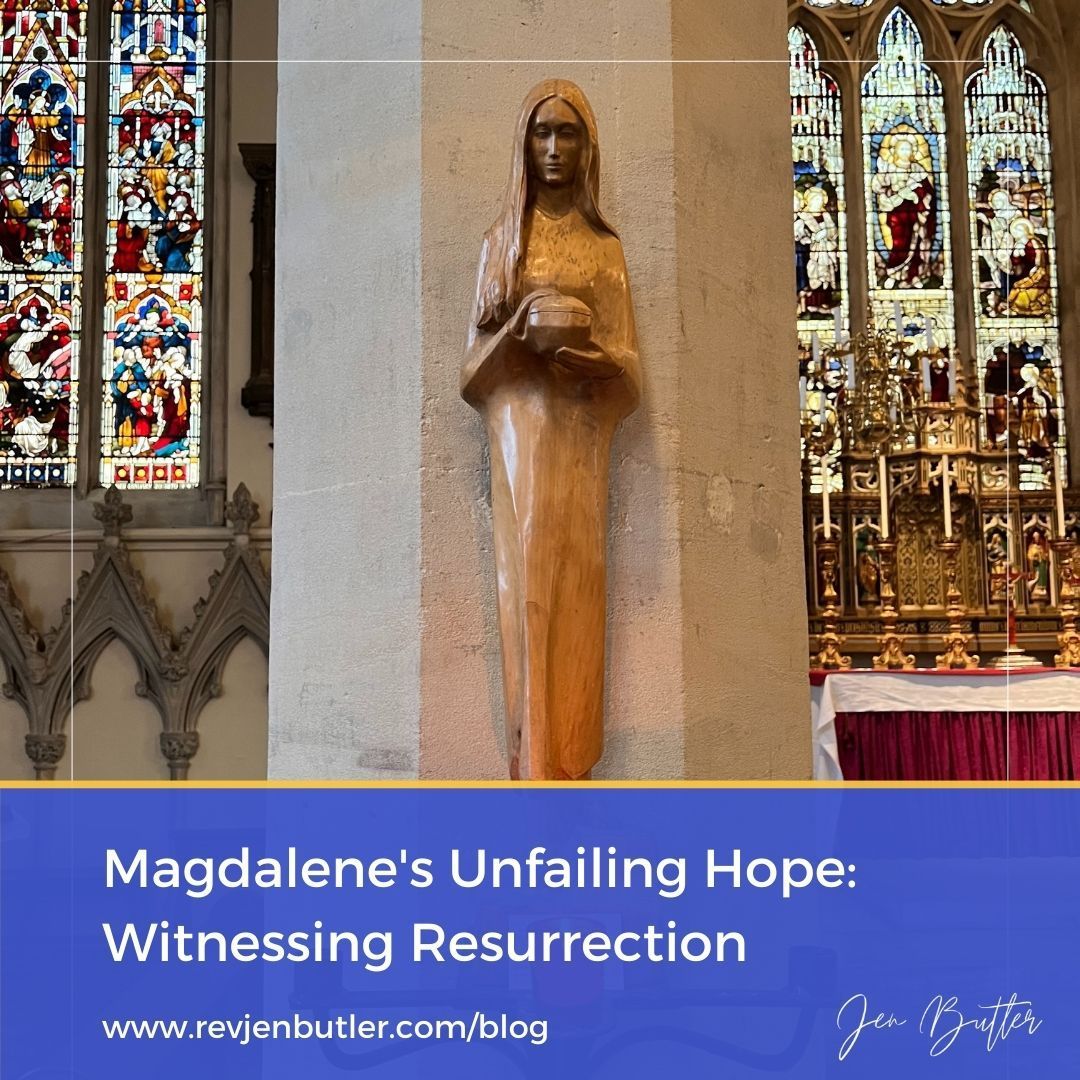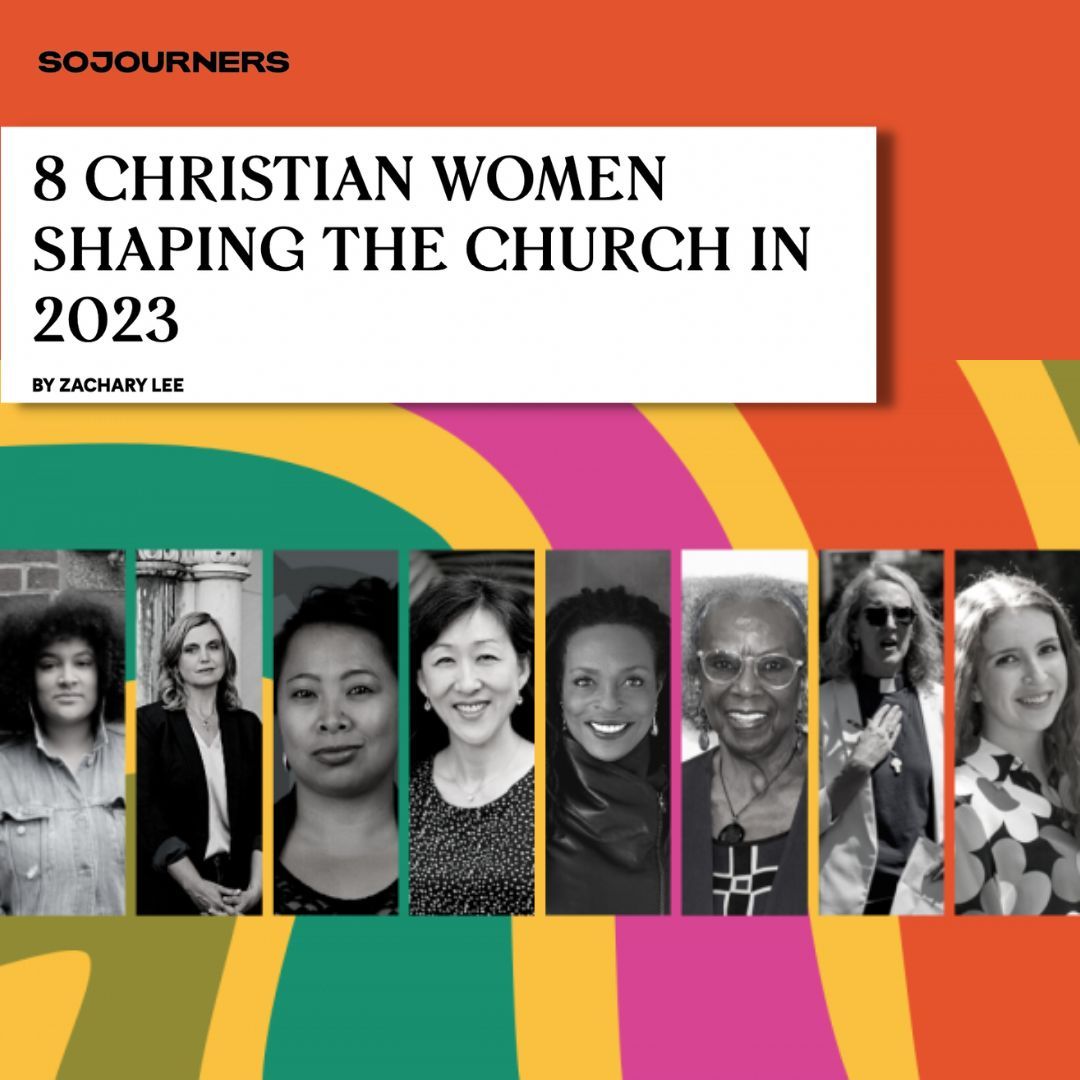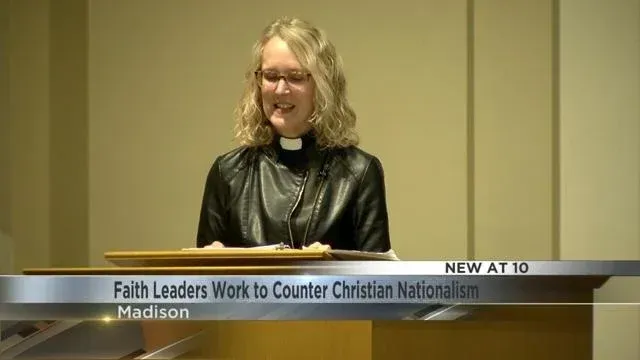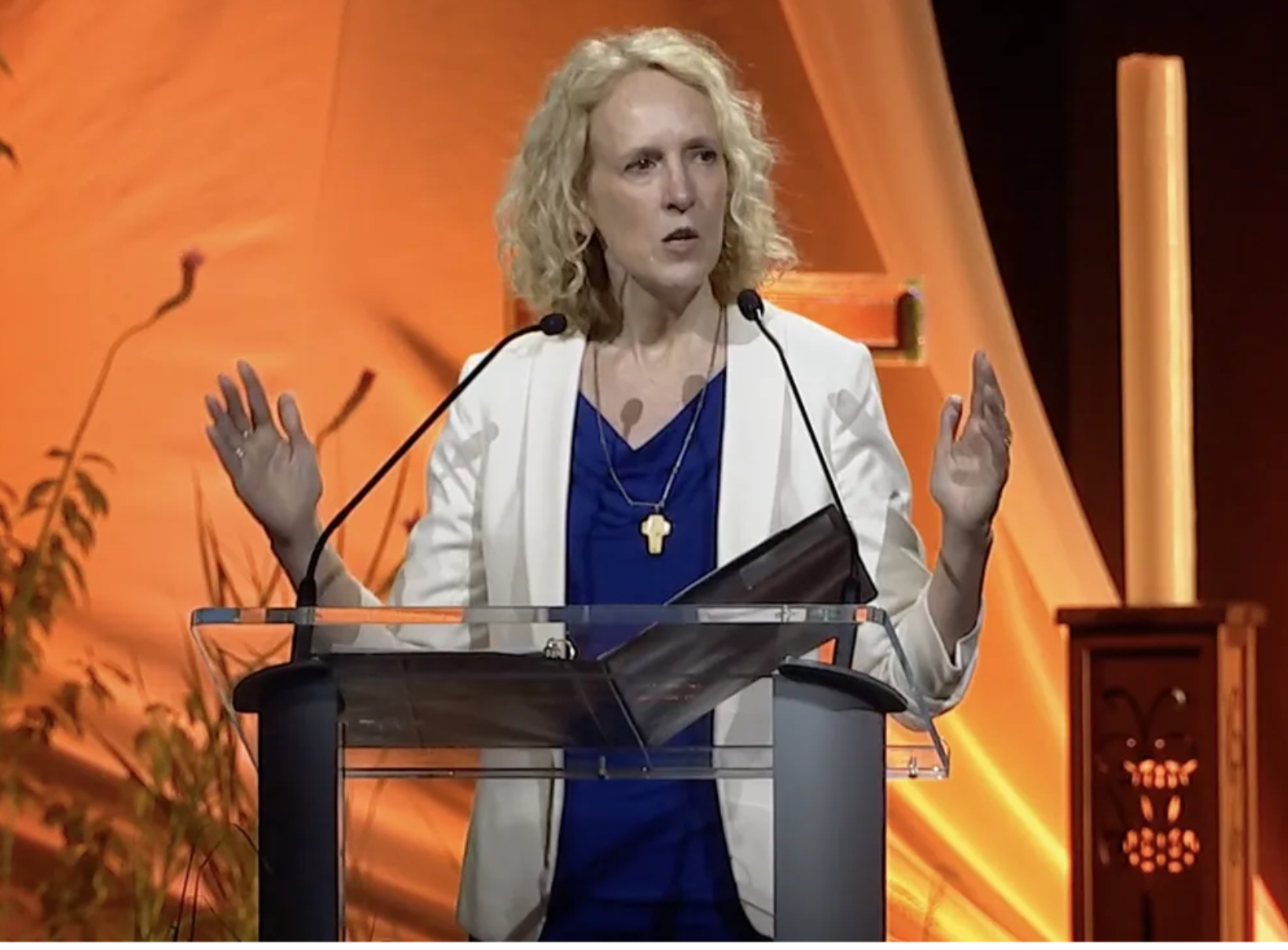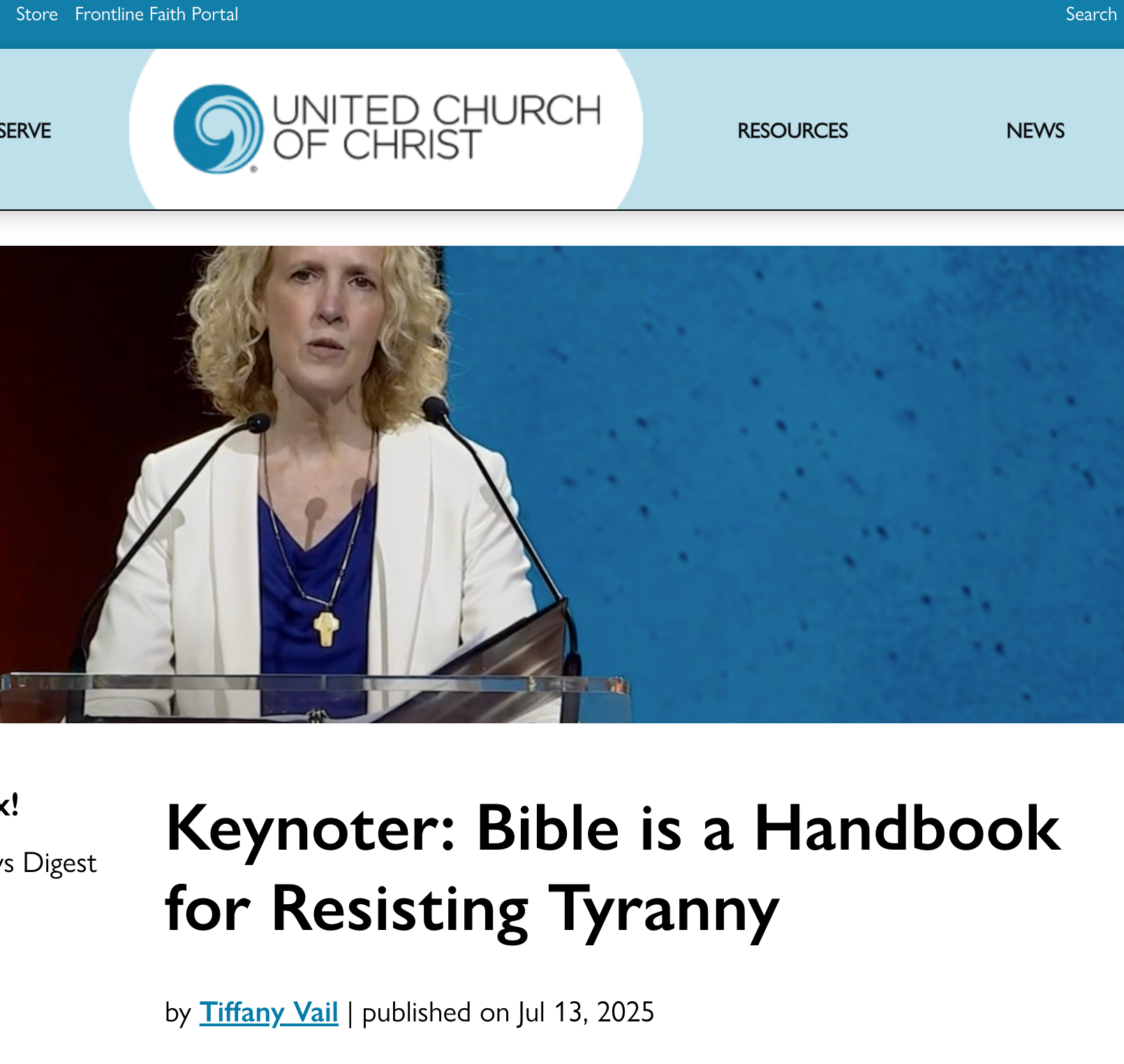Loving our “Enemies” in an age of Conspiracy Theories and Christian Nationalism
Many of us see the impact of rising support for Christian nationalism and QAnon as people we know get pulled into these dangerous belief systems. How can we help when friends, family or co-workers have been drawn to such beliefs?
This month, nineteen faith organizations in Wisconsin came together to host my Faith in Democracy Tour and this is one of the important topics we covered. Challenging fear-based ideologies is critical to saving our democracy and Wisconsin has found itself at the epicenter as a battleground state. With one in five Americans caught up in QAnon and over fifty percent of Republican voters adhering or sympathetic to Christian nationalism, it’s time we figure this out. We can’t afford NOT to reach those in our orbit. Research shows that relationships and trust are the only way to reach people pulled into extremism. We often have more power than we know to influence the people in our lives away from these destructive ideologies.
As one who has had more than my share of knock-down-drag-out debates at family gatherings, I have been wrestling over the years with what to do when I encounter this ideology taking root in the souls of people I am deeply connected to. I recognize that the suggestion we can even have healing conversations with those who embrace antisemitic, racist and sexist ideologies may seem strange or even offensive, particularly if you are the target of such views. I speak to white Christians in particular when I say we need to pull our people out, and I recognize this work is not for everyone.
How do we “pull people out?”
Most of us want to tackle wrong beliefs with facts and logic. Instead, psychologists have found that we must first address the underlying fear, anxiety or anger that has driven the person into the hands of a dangerous worldview.
We need to understand the psychology behind extremism. Research shows that people are most vulnerable to conspiracy theories and violent extremism when their cultural worldview--the beliefs, values and structures that give meaning and structure to one’s life--is shattered. “Social domains” are the institutions and social structures that hold a worldview in place. They include religion, culture/media/Hollywood, government, science, gender roles, the economy, education, ideas about race and class and many more. When these domains are shattered, people become psychologically vulnerable. You can imagine some of the challenges to these social domains in recent years: sex scandals in religious institutions and Hollywood, a pandemic and a strained medical system that leave many feeling neglected and doubting science, rapidly changing social norms and structures and growing economic inequality that threatens livelihoods.
As a person’s social domains unravel, they experience anger, anxiety and lack of trust. Conspiracy theories and violent worldviews offer a sense of belonging, meaning and purpose. They appeal not through logic but through meeting emotional needs. QAnon, for example, offered a community that bonded over pursuing clues left by “Q” who was believed to be a high-placed government official seeking to dismantle a cabal of elites who trafficked children. In order to disrupt or dismantle dangerous beliefs, we must first address the same underlying emotional needs that these beliefs appear to meet.
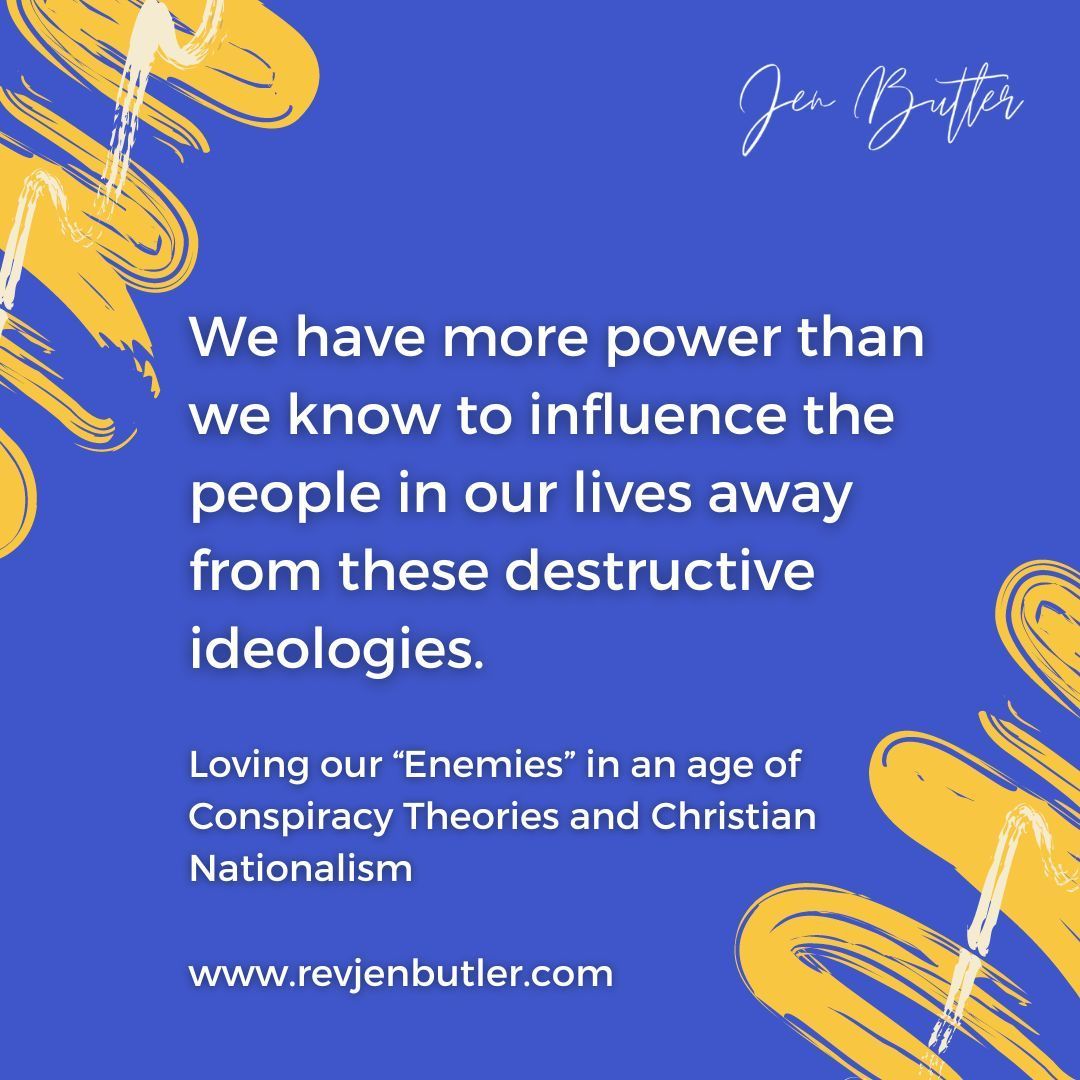
How do we do that?
I have found a nonviolent method of communication like CLARA to be useful in approaching vulnerable people. (This method was originally developed by Bonnie Tinker, a Quaker leader, in the 1990s.)
CLARA is an acronym for Center, Listen, Affirm, Respond and Ask.
- Center yourself by taking deep breaths and letting go of your need to win a debate or change the other person.
- Listen actively, repeating back what you are hearing.
- Affirm by showing empathy for the feelings underneath the beliefs (not the beliefs themselves.)
- Respond. When responding, look for a journey story or a mutually trusted source of information (perhaps scripture) that might open up their mindset.
- Ask. Continue the back and forth as you are able, ending and thanking the person for their willingness to dialogue. Set boundaries as needed.
The
Affirm
part of the acronym does not absolve us of the need to
Respond. These are both important and must be held in tension. Being empathetic is meant to help us connect personally and build trust. It can be easy for those of us who are conflict-avoidant to stop there, missing an opportunity to introduce new information that might help the person. Those of us who enjoy debates might be tempted to skip over empathy, but rational arguments go nowhere unless trust and understanding are present.
This is a spiritual encounter that is as transformative for us as it is for our conversation partner. I think of the times Jesus invited political opponents like Zacchaeus, the tax collector, to dinner.
I have found it freeing to let go of my own desire to change the other person, to win the argument or deliver a zinger I can brag about later. This process has even led me to see the ways in which my own needs--ego, the desire to control or win points--get in the way of change and create unnecessary pain. Through CLARA, I can approach these conversations with less intensity and greater calm, knowing my goal is simply to start a real dialogue that might one day help the person find a healthier worldview.
In a culture in which people are bombarded with vitriolic, violent messages on an hourly basis, a conversation based on empathy and mutual understanding can create an attractive alternative to our addiction to fear and anger.
We live at a time when politicians have very deliberately polarized us for their own power. One of the most powerful things we can do is disrupt their ability to do so. The ability to open up space to step back, recognize each other’s humanity and challenge the way we all relate to one another may be nothing short of revolutionary.
